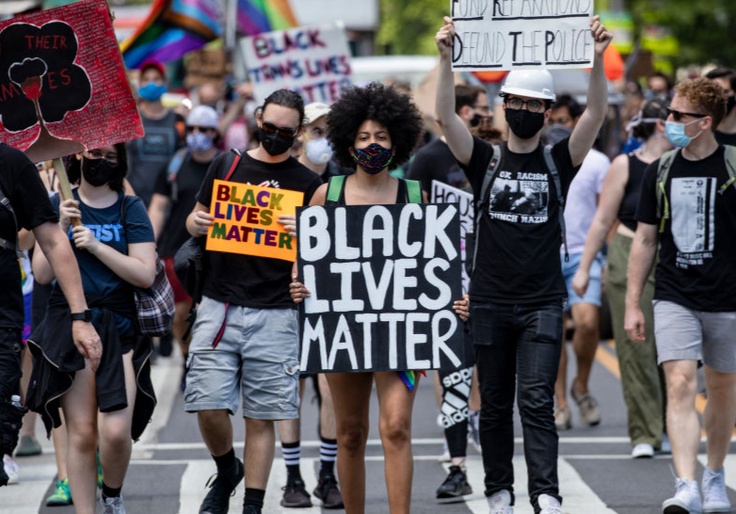Only 6 percent of new S&P 100 jobs went to white applicants in the year after George Floyd’s death, according to an analysis by Bloomberg News, a testament to the pervasiveness of legally tenuous diversity programs throughout corporate America.
The analysis, based on data reported to the Equal Employment Opportunity Commission, shows that S&P 100 companies added 323,094 new jobs between 2020 and 2021. Of that total, 302,570 of them—94 percent of the total increase—went to "people of color," defined as blacks, Asians, and Hispanics, the analysis found. Together, those groups make up just 40 percent of the U.S population.
The disparities raise new questions about the role of race in corporate hiring, which is already under scrutiny following the Supreme Court’s ban on affirmative action in college admissions. With many companies and law firms now facing lawsuits over their diversity programs, the numbers suggest that race-conscious decision-making has gone beyond flashy fellowships or supplier diversity initiatives; in 2020, it appears to have permeated routine employment decisions.
"These numbers are extraordinarily stark," said Dan Morenoff, the executive director of the American Civil Rights Project, which litigates reverse discrimination cases. "It’s very hard to imagine this could be legally defensible."
Morenoff added that "disparate impact," or disparities in outcomes, can be a basis for liability even without proof of intentional discrimination. The Justice Department used this theory last year when it sued Meta, Facebook’s parent company, on the grounds that the platform’s algorithms affect users differently based on their race.
The shocking numbers may reflect the efforts by C-suites to incentivize workforce diversity through financial means. Starbucks, Facebook, BlackRock, and Verizon all tie executive compensation to racial targets , and other companies have even written those targets into their credit agreements with banks, tying the cost of borrowing to minority representation.
"The more a company seeks to ensure diversity ‘goals’ are achieved through significant financial pressure, the higher the risk that a court might find that such ‘goals’ actually are unlawful quotas," Andrea Lucas, a commissioner at the Equal Employment Opportunity Commission, told the Washington Free Beacon in July.
